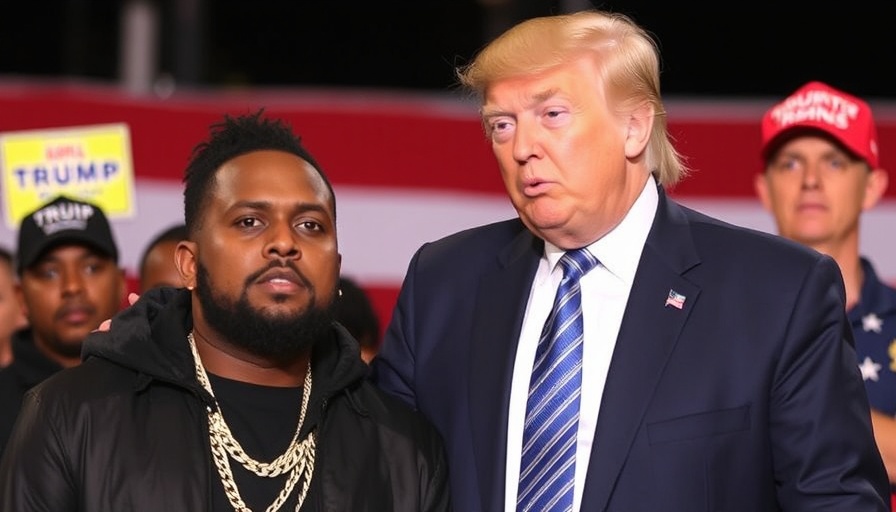
The Intersection of Fame and Crime: How Sheff G's Legacy is Complicated
Rapper Sheff G, best known for his performances at high-profile events, including a rally for Donald Trump, has recently pleaded guilty to serious charges. This case raises fundamental questions about the interplay of celebrity culture, gang violence, and the criminal justice system. In a world where success can often overshadow one's past mistakes, how does a person's fame interact with their actions?
Gang Influence on Artistic Expression: A Complex Relationship
In the hip-hop community, the line between artistry and criminality is often blurred. Sheff G's music mirrored the gritty realities of street life, yet it also romanticized violence and gang activity. This relationship highlights a trend where narratives of struggle become intertwined with tales of crime, creating an allure that often captivates audiences. As digital nomads explore cities rich in artistic culture, understanding these dynamics helps to paint a more holistic picture of the environments that shape artists.
Understanding the Stakes: Brooklyn's Gang Culture
Brooklyn's gang landscape has long been fraught with violence, which several artists, including Sheff G and his collaborator Sleepy Hallow, have been linked to. The Eight Trey Crips and 9 Ways gangs have deep roots in the borough's history, yet the glorification of gang life in music can lead to real-life consequences, as seen in Sheff G's case. For travelers and digital nomads visiting this vibrant area, appreciating its artistic output also means acknowledging the complexities and dangers that often lie beneath.
Fame: A Double-Edged Sword
While notoriety can propel an artist's career, it can also expose them to scrutiny. After joining Trump on stage and gaining media attention, Sheff G's life took a drastic turn. Prosecutors allege that he used his fame not only for personal gain but also as a tool to fund and propagate violence. The juxtaposition of being celebrated in the public eye while facing legal consequences showcases the dual-edged nature of celebrity.
Rappers as Role Models: The Impact of Violence on Youth
Many young people look up to artists like Sheff G as role models, often emulating their lifestyles and choices. However, the destructive patterns highlighted in his case serve as a cautionary tale. The responsibility of artists in shaping the narratives surrounding violence is significant. As digital nomads learn about local cultures, it becomes increasingly important to engage in dialogues about the messages that music conveys to youth.
Community Responses: A Call for Reflection
The community’s response to Sheff G's arrest and his later admission of guilt is a crucial component of this story. It opens up discussions about how society perceives artists' actions and the potential repercussions on community safety. Addressing gang violence is not just a matter of individual responsibility but a reflection of larger societal issues that need to be tackled collectively. This perspective is critical for anyone looking to engage meaningfully with global communities.
As we reflect on Sheff G's case, it's essential to recognize that understanding the history and culture of hip-hop—and the environments that foster it—offers rich insights for travelers and digital nomads alike. The allure of fame and the harsh realities it sometimes obscures present lessons about making conscious choices regarding the influences we engage with.
Sheff G is set to be sentenced later this year, marking a poignant moment for the hip-hop community and raising vital questions about justice, accountability, and the narratives within music that resonate beyond lyrics.
Explore the cultural implications of this event further and consider how local artists influence the world's perceptions of their communities.
 Add Row
Add Row  Add
Add 




Write A Comment